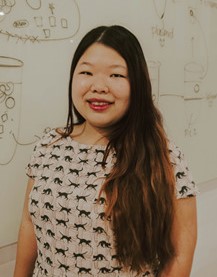About This Course
The science community produces a vast amount of data and discoveries at a rapid speed. To promote a more engaging role for science in the public eye, scientists need to discuss complex scientific findings in a clear, concise manner with members of the public. More often, students as blossoming scientists gain their communication skills in the academic setting, where the participants are mostly familiar with the focused subject. In contrast, they might find difficulties in explaining their field of study in a simple and relatable way. We will attempt to create a bridge that connects the academic community to those outside their immediate field through our course. Participants will learn how to identify their target audience, formulate a core message in communicating, use specific strategies to make complex scientific concepts more relevant to their audience, and create digital media to start a conversation about science.
This course is designed for anyone with a life science or natural science background. There are 14 units in total and one unit is released each week. As a capstone project, participants are required to create a blog article or a video about their topic of interest. The course material will be delivered in English but the final project may be done in English or Indonesian.
Credits Weight : 2
Learning outcomes
Upon completion of the provided activities, you will be able to:
- Identify your target audience in communicating science
- Formulate a core message
- Use various strategies to make scientific concepts more relevant to your audience
- Create digital content on your field of expertise or interest
Requirements
Any major in life science or natural science. Basic English reading and writing are highly recommended.
How will you learn?
The course is split into 14 units. One unit is released each week and you will complete it at your own time and convenience. Each week, you will:
- Go through the self-study materials
- Participate in either a quiz, an exercise, or a discussion forum
- Record a learning reflection video to respond to specific questions related to the unit
As a final project, you will create a blog article or a video on a topic related to your field of study or expertise.
Course Staff

Watumesa Agustina Tan, Ph.D
Mesa completed her Ph.D training in Microbiology at the University of California Davis. She specializes in the molecular diversity of bacteria in soil and their potential role in the decomposition of biodegradable plastics. She is also interested in studying how bacteria may have evolved the ability to degrade aromatic pollutants.
She is certified as an online instructor by the Learning Resources Network, USA. Following her experience in the American Society for Microbiology Leadership Grant for International Educators, Professors for the Future, and Teaching Assistant Consultant programs, she implements student-centered learning in her teaching practices. In 2017, she initiated the Science Communication course at the Faculty of Biotechnology, Atma Jaya Catholic University of Indonesia, to create a bridge of conversation among the science community to those outside their field.
Email: [email protected]

